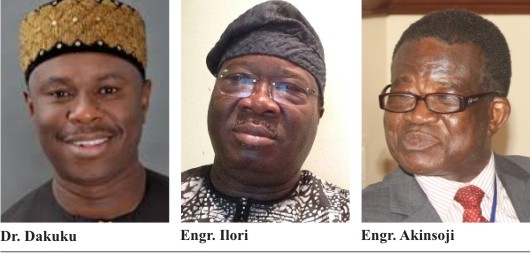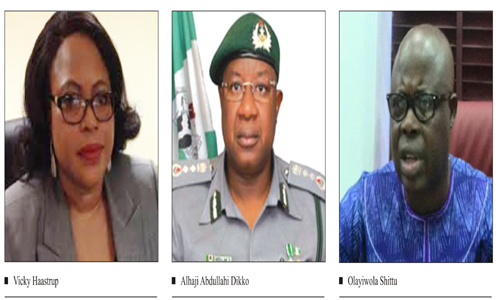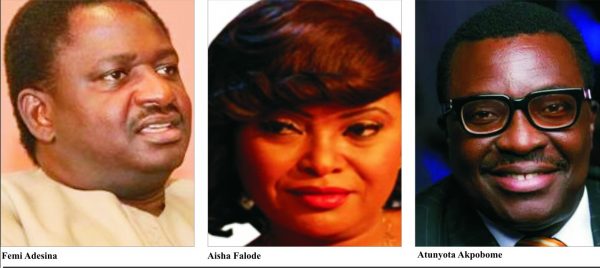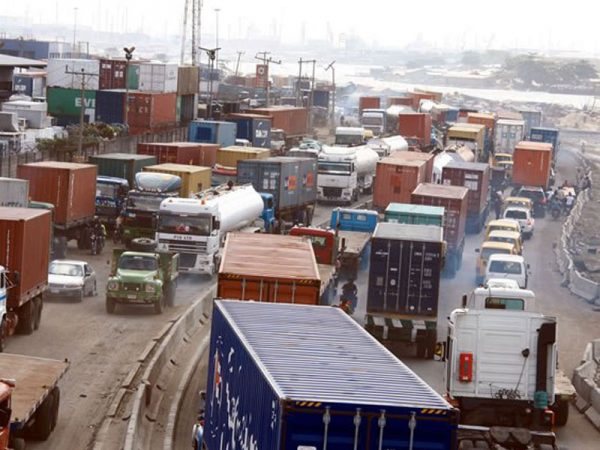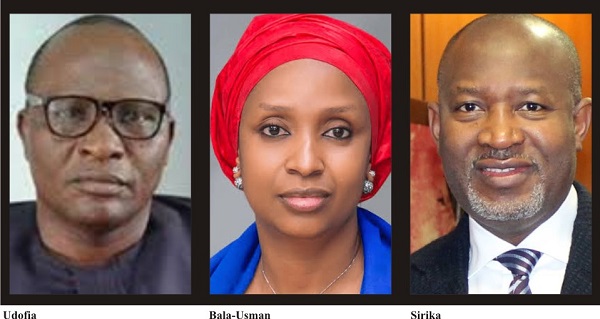Addressing Nigeria’s Maritime Resource Deficiency
By Kenneth Jukpor
Over the years, Nigeria has made efforts to correct the infrastructural deficits at the ports, policy adjustments as well as the security challenges in the coastal areas; however, a recurring problem which has only received lip service from regulatory agencies and the Transport Ministry is the dearth of skilled manpower in the maritime sector.
Industry experts have pointed out how other countries harness the potentials of a maritime centre for excellence to solve this problem but Nigeria’s body saddled with this responsibility Nigerian Maritime Resource Development Centre (NMRDC) remains at a pitiable state.
The facility located in Kirikiri (Lagos) has become Siberia for the Nigerian Maritime Administration and Safety Agency (NIMASA). NIMASA officials dread this facility as there is no power supply and it is a contrast to the ambiance of beauty and excellence of the NIMASA headquarters.
Recall the Minister of Transport, Hon. Rotimi Amaechi’s reaction after his visit to the centre; “What I saw in NIMASA Resource Centre is a No! No! No! You have a wonderful building as your headquarters but when we went to the Resource Centre, there is nothing about resource in that centre”
On the shambolic state of the medical laboratory at the Resource Centre, Amaechi lamented that the only significant medical equipment he found in the laboratory was a stethoscope which he described as a tool anyone could purchase since one doesn’t need to be a doctor to own a stethoscope.
Amaechi observed during his maiden visit that the main doctor had one stethoscope, while two other female doctors were sharing one.
Two years have passed and the leadership at NIMASA has undergone commendable rejigging but the state of the resource centre hasn’t enjoyed commensurate transformation. There are still leaky roofs, dilapidated chairs, lack of power supply, and officials still dread to be transferred to this NIMASA’s ‘Siberia’.
Highlighting the need for a drastic change in the status quo with regards to human capacity development, Engr. Emmanuel Ilori noted that the goals and maritime technical development in Nigeria include; Improve quantity of Nigerian maritime surveyors, Improve Nigerian marine cadetship training scheme to deliver sustainable International technical manpower and support national technical development, Enhance Nigeria’s technical status at the International Maritime Organization (IMO), among others.
Engr. Ilori who was speaking during the recent 2nd Edition of Nigeria Maritime Technical Summit organized by the Association of Marine Engineers and Surveyors (AMES) in Lagos, explained that the availability of an efficient maritime centre for excellence would raise surveyor availability level to deliver statutory responsibilities and Abuja MOU inspection requirements, provide development plan for marine surveyors, improve Nigerian marine cadetship training scheme to deliver sustainable International technical manpower and support national technical development.
He also posited that such initiative would raise Industrial confidence-to stimulate local growth, encourage investment in ship building/acquisition to take advantage of global economic situation for strategic development, provide opportunities for training for key industrial stakeholders and policy influencersand raise awareness of global maritime issues.
According to Ilori, issues such as; port risk assessment on impact of substandard ships and congestion of local waters and development of the Abuja MoU technical standards would be supported; while Nigeria enhances its technical status at IMO and supports strategic development as African Atlantic coast main hub and elimination of substandard ships.
Although the Federal Government pledged to partner with the AMES to groom successor generations of marine engineers and surveyors, the government should put in efforts to change the fortunes of the nation’s maritime resource centre as a more strategic way to enhance technical expertise for the industry to thrive.
Interestingly, it was the Director-General of NIMASA, Dr. Dakuku Peterside that represented the Minister of Transport at the occasion where he lauded Marine Engineers and Surveyors as the very heart of shipping.
“The life of a ship begins at the table of a marine engineer and so those structures that you see are designed by people like Engineer Charles Uwadia and co., the structures that you see in fact begins with a vision of the kind of ship that you want to build, they put pen on paper and begin to carry out a design and throughout the life of a vessel, they will continue to play key role ensuring that the vessel is safe to convey our goods. Till the end of the life of a vessel, they will continue to play a role. That is why we said that they are the very heart of a vessel”, Dakuku said.
However, he assured that the government was going to reposition Maritime Academy of Nigeria (MAN) Oron, noting that the government was determined to support the academy in terms of the curriculum and the entire development of MAN Oron.
On his part, Former Rector of MAN Oron, Engr. Olu Akinsoji admonished NIMASA to deploy an Institutional Instrument through which it could delegated policies include; administer policy for the development of shipping in general; develop and implement policies and programs which will facilitate the growth of local capacity in ownership, manning and construction of ships and other maritime infrastructure Casualty and other maritime investigations.
He noted that such instrument should establish the procedure for the implementation of conventions of IMO & ILO and other international conventions; provide Maritime Security; Perform port and flag state duties; Administer the provisions of the Merchant Shipping Act (MSA), 2007; Enforce and administer the provisions of the Cabotage Act 2003
Akinsoji who also represented Nigeria at the IMO Council, highlighted the policy challenges in ship operations, lamenting that policies were too frequently influenced by the continuous body of Conventions, Protocols, Guidelines, Recommendations and other measures from International obligation i.e. IMO, ILO , UNCTAD, among others.
Breaking down the problems in Nigerian context he highlighted the inadequate follow-up on International obligations, guidance probably due to weak institutional framework; inadequate statistics and industry data which impedes planning and ability to make informed decisions; insufficient consultation, cooperation and coordination among relevant entities; significant gaps in administrative procedures, such as setting targets based on policy, effective monitoring mechanism, reviewing processes, corrective measures and removal of identified causative/barrier elements.
According to Akinsoji, other problems include; “deficit comparative incentives to attract fruitful partnership between government agencies, the private sector, financial institutions (Local and Foreign) and development partners; Ability to harness trust, accountability and transparency in shipping capacity development matters; Application of insufficient resources to areas of priority in developmental policies; Insufficient political attention to non governmental entities necessary for policy formulation and implementation; Policy objectives are not addressed in systematic manner for meaningful achievement; Insufficient professional input to policy formulation and implementation processes; and a very serious gap exist between policies and implementation process, such as strategic plan or implementation guidance”
However, Akinsoji equally postulated some solutions to overcoming these challenges, they include; follow-up actively in international development particularly on amendments and guidance on ratified conventions and be pro-active in adjusting/reviewing position on corresponding policies; train and retain certified/key staff for tasks assigned to each one- refraining from unnecessary transfer of staff, aiming at creating experts in specific areas; the minister should establish an institutional body for a feed back on the effectiveness of policy such as policy group or advisory committee to include key industry members and policy executing agencies; ensure every policy statement is followed up with implementation strategic plan to enable performance assessment through target setting.
Others are; establish monitoring and evaluation mechanism to provide guidance for administrative processes so as to remain on focus and achieve policy goals/objectives; encourage data collection, analysis, collation, storage and dissemination; respond actively to international information requirements; enhance the involvement of relevant non-governmental professional bodies in policy formulation and implementation processes and enhance policy formulation by domesticating ratified conventions and amendments to those already domesticated such as SUA,88, 2005 and protocols and take positions on topical issues at IMO such as GHG.
A good number of the challenges will be alleviated by establishing the National Transport Commission (NTC) provided appropriate professionals are engaged as commissioners and the commission should be given the very high level of political support it deserves.
The development of this centre for maritime excellence would lead the nation to become more proactive in the industry, ensure Nigeria joins the 20 countries who regularly provide technical support for IMO legislation, improve ship quality and Port State Control effectiveness, and many other benefits; but the nation has to take some action which is better than just watching from the sidelines.
Copyright MMS Plus.
All rights reserved. This material, and other digital content on this website, may not be reproduced, published, broadcast, rewritten or redistributed in whole or in part without prior express written permission from KINGS COMMUNICATIONS LIMITED.

